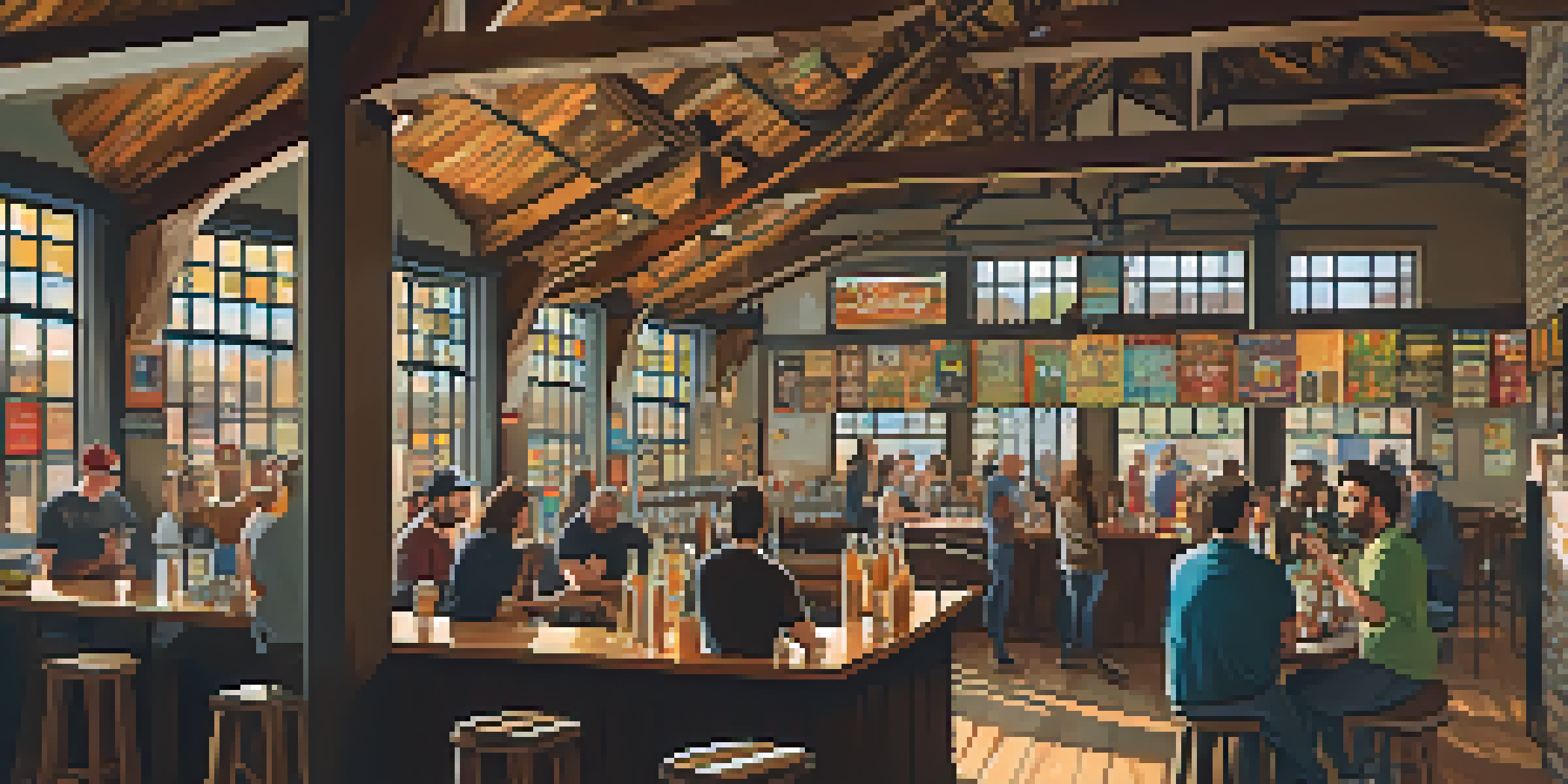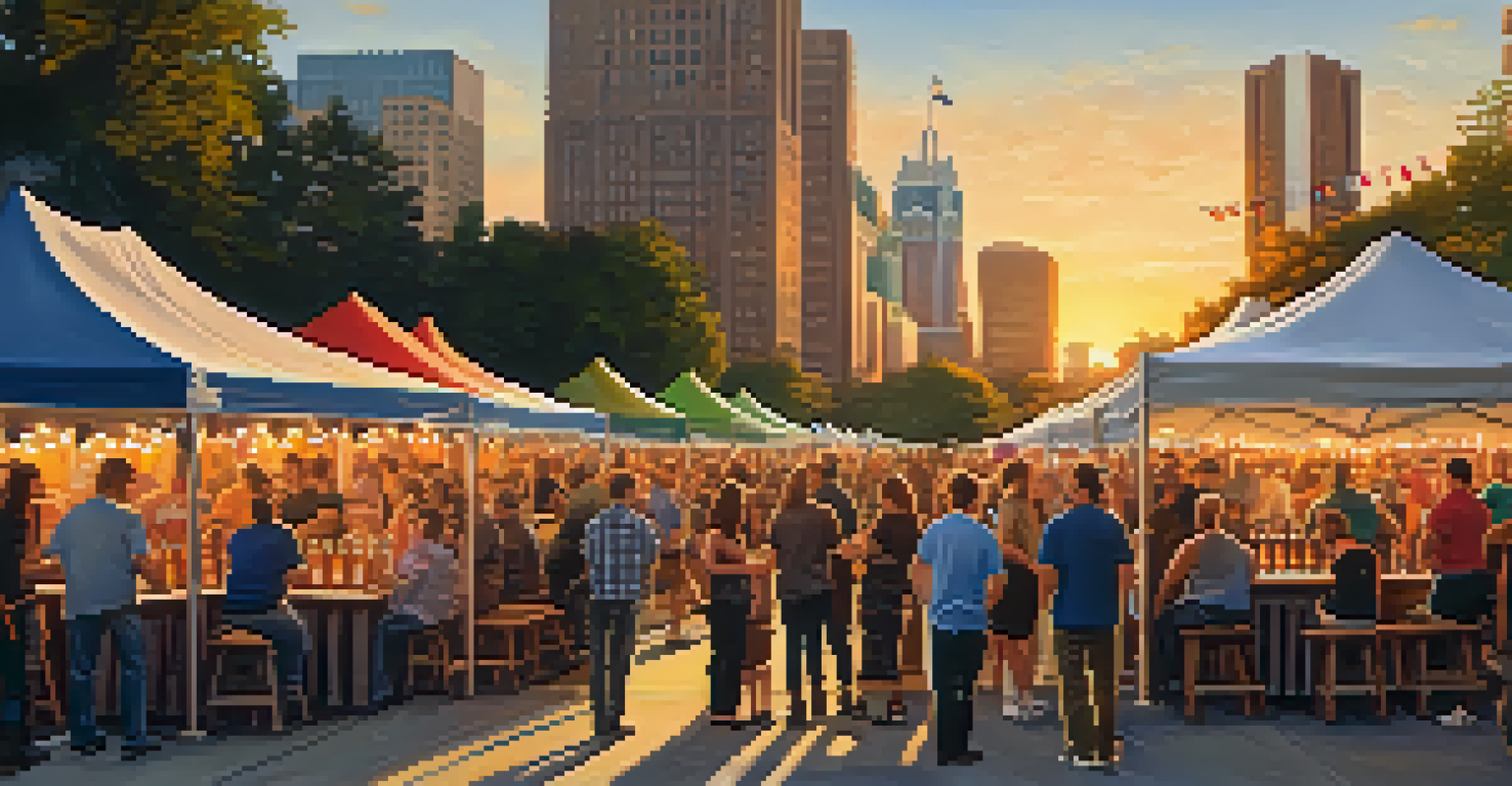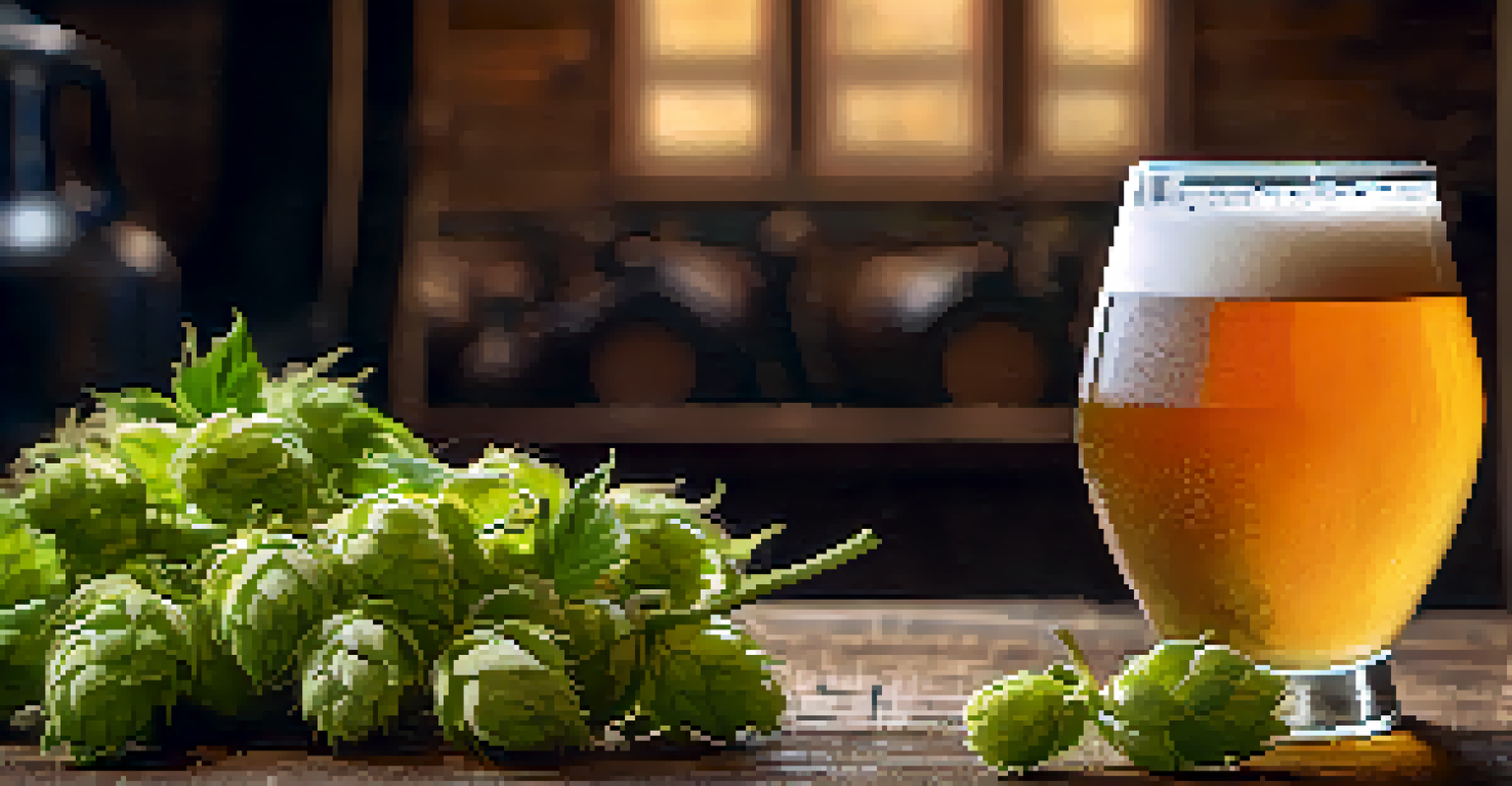The Rise of Detroit's Craft Beer Scene: A Local Revolution

Detroit's Brewing Legacy: A Historical Perspective
Detroit has a rich brewing history that dates back to the 19th century, with German immigrants establishing some of the first breweries. This foundation laid the groundwork for a vibrant beer culture that flourished until Prohibition hit in the 1920s. Many breweries closed, and others were forced to pivot, leading to a long lull in Detroit's beer scene.
Craft beer is a movement, not just a product. It's about community, creativity, and connection.
However, as the city began to revitalize in the late 20th and early 21st centuries, a new wave of craft breweries emerged. Entrepreneurs and beer enthusiasts took inspiration from the city’s storied past, blending it with innovative brewing techniques and flavors. This resurgence has not only revived Detroit's brewing culture but has also solidified its place on the national craft beer map.
Today, the echoes of Detroit’s brewing legacy are evident in the passion of local brewers who create distinct and memorable beers. They honor traditional recipes while experimenting with local ingredients, showcasing the unique character of the city and its people.
The Craft Beer Boom: What Sparked the Revolution?
The craft beer boom in Detroit can be attributed to a combination of factors, including a growing interest in locally sourced products and a desire for unique flavors. As consumers became more discerning about their choices, the demand for small-batch, artisanal products skyrocketed. This shift encouraged aspiring brewers to take the plunge and start their own breweries.

Additionally, the city’s revitalization efforts brought new life to neighborhoods, creating vibrant spaces for breweries to flourish. With community support and a shared passion for craft beer, these establishments became gathering places for locals and visitors alike. Breweries began to serve as social hubs, fostering a sense of community around their unique offerings.
Rich History of Detroit Brewing
Detroit's brewing legacy began in the 19th century, experiencing both a decline during Prohibition and a vibrant revival with the rise of craft breweries.
Moreover, events like beer festivals and tastings have popped up throughout the city, allowing brewers to showcase their creations. These gatherings not only celebrate local talent but also educate consumers about the craft beer process, creating a deeper appreciation for the brews that are made right in their own backyard.
Local Ingredients: The Heart of Detroit's Craft Beer
One of the defining features of Detroit's craft beer scene is its commitment to using local ingredients. Many breweries source their grains, hops, and even fruits from nearby farms, which not only supports the local economy but also results in fresher, more flavorful beers. This emphasis on local sourcing ties the craft beer movement closely to the identity of Detroit.
Beer, if drunk in moderation, promotes health and longevity; if drunk to excess, produces the opposite.
For instance, some breweries have started incorporating Michigan-grown cherries and blueberries into their seasonal brews, creating uniquely regional flavors that reflect the state’s agricultural bounty. This approach not only sets Detroit's craft beers apart but also tells a story of the land and its community, connecting drinkers to the region in a meaningful way.
This trend toward local sourcing has inspired collaboration among brewers, farmers, and the community. Events that highlight local produce or ingredients have become popular, further strengthening the bond between the craft beer scene and the rich agricultural landscape of Michigan.
Diversity in Brewing: Styles and Flavors in Detroit
Detroit's craft beer scene is also marked by its impressive diversity in styles and flavors. From IPAs to stouts, lagers to sours, local breweries are pushing the boundaries of what's possible in brewing. This variety not only caters to different tastes but also encourages experimentation among brewers and drinkers alike.
For example, some breweries are creatively fusing traditional styles with eclectic ingredients, resulting in unique concoctions that surprise and delight patrons. A brewery might offer a classic pale ale brewed with exotic spices or a rich stout infused with local coffee, showcasing the innovative spirit that defines Detroit’s craft beer landscape.
Local Ingredients Drive Flavor
Many Detroit breweries emphasize sourcing local ingredients, resulting in unique beers that reflect the region's agricultural bounty.
This diversity has attracted a wide range of beer enthusiasts who appreciate the opportunity to sample and discover new flavors. As more people join the craft beer movement, breweries are motivated to continuously evolve their offerings, ensuring that there’s always something new to try.
Community Engagement: Breweries as Gathering Places
Craft breweries in Detroit have emerged as community hubs where people gather to connect, relax, and enjoy great beer. Many breweries host events like trivia nights, live music, and food trucks, creating a lively atmosphere that draws in locals and visitors alike. This sense of community is a vital part of what makes the craft beer scene in Detroit so special.
Moreover, breweries often engage with local charities and organizations, reinforcing their commitment to the community. Whether it’s fundraising events or collaborations with local artists, these initiatives help strengthen bonds within the neighborhood while giving back to those in need. This collaborative spirit is a hallmark of Detroit's craft beer revolution.
As these breweries continue to foster connections among residents, they contribute to a sense of belonging and pride in the city. The craft beer movement has become a vehicle for community engagement, allowing people to come together over a shared love of local brews and experiences.
The Role of Festivals and Events in Promoting Craft Beer
Festivals and events play a crucial role in promoting Detroit's craft beer scene, offering a platform for breweries to showcase their latest creations. Events like the Detroit Fall Beer Festival attract thousands of attendees, eager to sample a wide variety of local brews in a festive atmosphere. These gatherings not only celebrate the craft beer community but also introduce newcomers to Detroit's offerings.
Additionally, festivals often include educational components, such as brewing demonstrations and tastings led by experienced brewers. These opportunities allow attendees to learn about the brewing process and the unique ingredients that go into their favorite beers, enhancing their appreciation for the craft. As a result, these events help cultivate a knowledgeable and passionate beer-drinking community.
Breweries as Community Hubs
Craft breweries in Detroit serve as social gathering places, fostering community engagement through events and collaborations with local organizations.
As the craft beer movement continues to grow, so too do the events that celebrate it. With each new festival or tasting event, the excitement around Detroit’s craft beer scene amplifies, drawing more people into the fold and solidifying the city's reputation as a craft beer destination.
Looking Ahead: The Future of Detroit's Craft Beer Scene
The future of Detroit's craft beer scene appears bright, with new breweries and taprooms continuing to open across the city. As the movement gains momentum, more entrepreneurs are inspired to pursue their brewing dreams, contributing to an ever-expanding landscape of flavors and experiences. This growth not only enriches the local culture but also keeps the spirit of innovation alive.
Moreover, as the craft beer industry matures, there’s an increasing focus on sustainability and environmentally-friendly practices. Many breweries are exploring ways to reduce their carbon footprint, from using renewable energy sources to implementing recycling programs. This shift towards sustainability resonates with consumers who value eco-conscious choices, further strengthening the bond between breweries and their communities.

As Detroit's craft beer scene continues to evolve, it remains rooted in the values of community, creativity, and collaboration. The city’s brewers are committed to not just making great beer but also contributing to the cultural fabric of Detroit, ensuring that the craft beer revolution is not just a trend, but a lasting legacy.